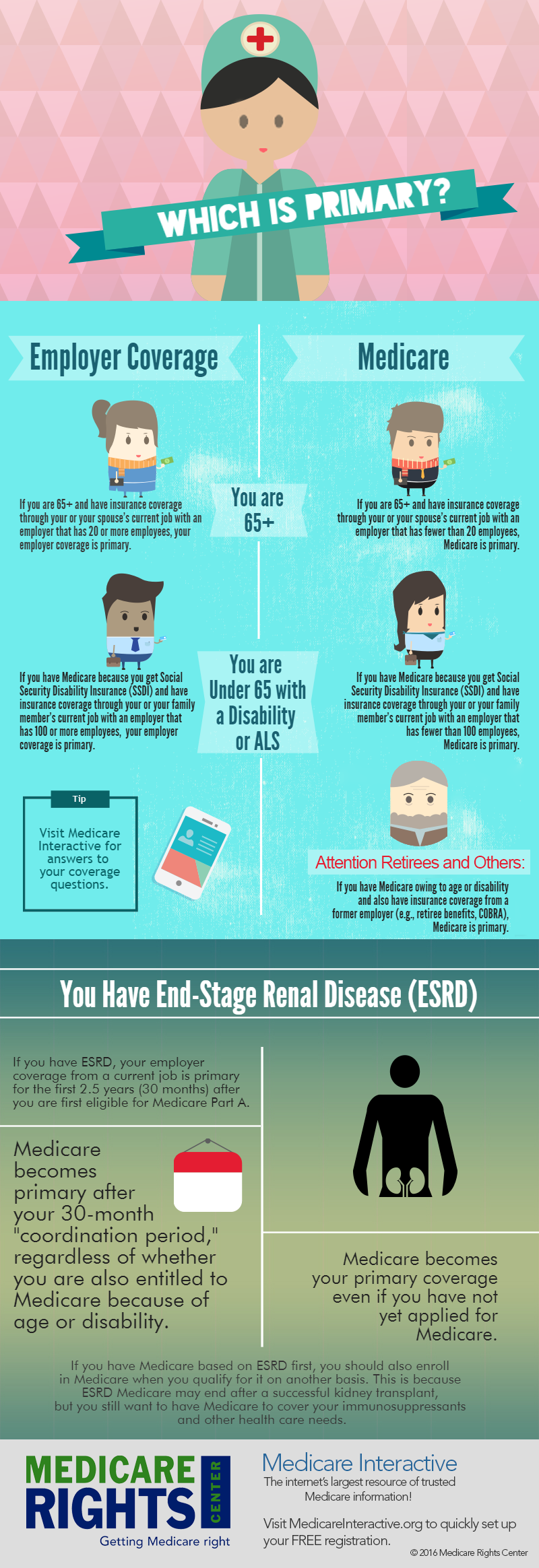Join Us Live for a Discussion on Medicare, Democracy, and the Future of Health Care
Infographic: Which is Primary? Medicare and Employer Coverage

Medicare can either be primary or secondary to your employer coverage. This usually depends on the size of the employer and whether or not someone is currently working.
Primary insurance pays first for health care claims. Secondary insurance pays after the primary insurance for some or all of what the primary insurance did not cover. Knowing which is primary is important because secondary insurance often refuses to pay anything if the primary insurance has not paid first.
Check out this handy infographic explaining when employer coverage is primary and when Medicare is primary:
Share this infographic on your website.
Copy and paste the following embed code into your webpage:
Show Comments
We welcome thoughtful, respectful discussion on our website. To maintain a safe and constructive environment, comments that include profanity or violent, threatening language will be hidden. We may ban commentors who repeatedly cross these guidelines.
Help Us Protect & Strengthen Medicare
Donate today and make a lasting impact
More than 67 million people rely on Medicare—but many still face barriers to the care they need. With your support, we provide free, unbiased help to people navigating Medicare and work across the country with federal and state advocates to protect Medicare’s future and address the needs of those it serves.
The Latest
Most Read
Add Medicare to Your Inbox
Sign up to receive Medicare news, policy developments, and other useful updates from the Medicare Rights.
View this profile on InstagramMedicare Rights Center (@medicarerights) • Instagram photos and videos










